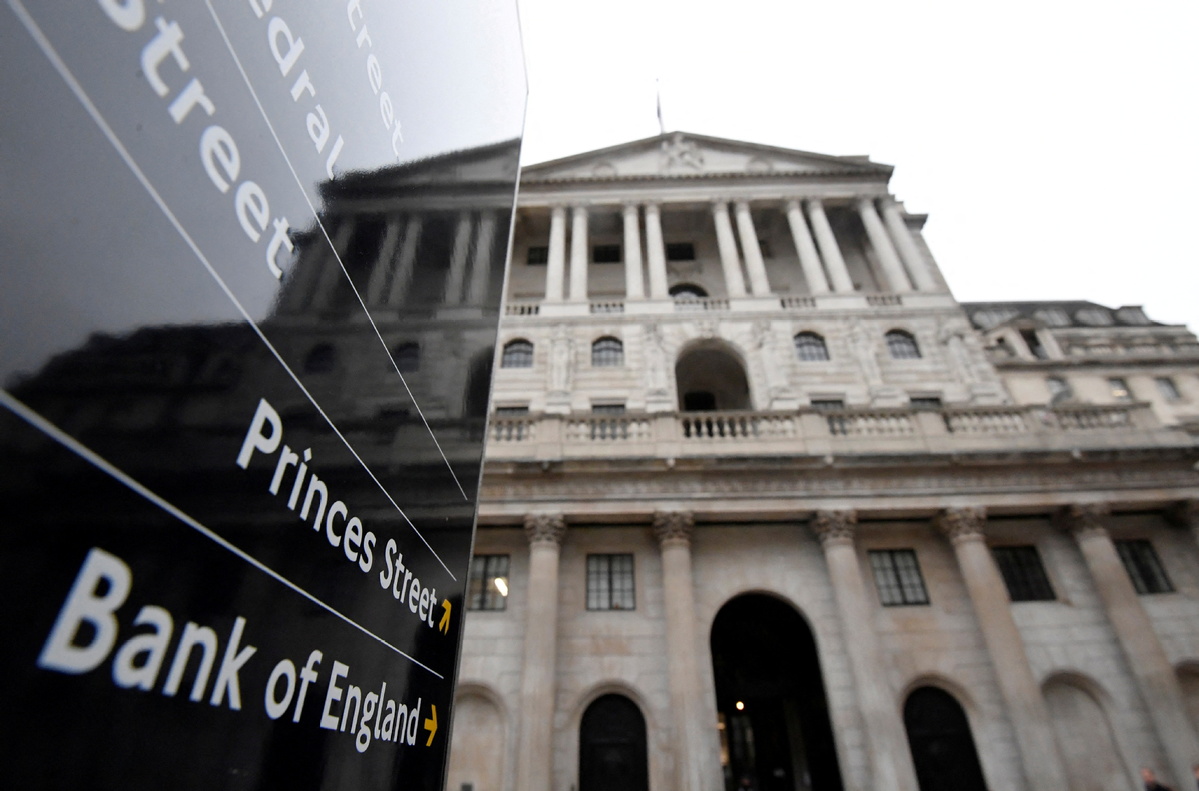Bank of England set to raise interest rates
By Julian Shea in London | chinadaily.com.cn | Updated: 2022-01-31 22:07

The Bank of England's Monetary Policy Committee, or MPC, is widely expected to announce the first back-to-back interest rate rises in 18 years when it meets on Thursday, in a bid to tackle rising inflation.
The increase announced in December, from 0.1 percent to 0.25 percent, was the first time the rate had gone up in over three years, but with consumer price inflation having hit a 30-year high of 5.4 per cent that same month, a strong labor market, and the changing status of the on-going novel coronavirus pandemic, the mood among analysts is that the figure will rise to 0.5 percent this week.
"The fourth quarter of last year saw the MPC's biggest inflation forecasting error on record," Liz Martins, an economist at HSBC, told the Financial Times.
"The main source of uncertainty in December, the Omicron variant, appears to be receding, with plan B restrictions (in England) now lifted."
The Bank has warned that the situation could get worse before it gets better, with inflation tipped to peak at close to 6 percent by April, which would be three times the target rate set by the government.
"To keep inflation low and stable, the government sets us an inflation target of 2 percent. This helps everyone plan for the future," said a statement on the Bank of England website.
"If inflation is too high or it moves around a lot, it's hard for businesses to set the right prices and for people to plan their spending.
"But if inflation is too low, or negative, then some people may put off spending because they expect prices to fall. Although lower prices sounds like a good thing, if everybody reduced their spending then companies could fail and people might lose their jobs."
Steffan Ball, the chief UK economist at Goldman Sachs, told the Guardian newspaper that the MPC might even lift interest rates to as high as 1.25 percent by November.
Financial website This is Money reports that the Bank has raised interest rates just three times over the last 15 years, but there are warnings that there could be as many as five increases during the course of 2022, which would add to the financial woes of two million mortgage borrowers who are on variable rates, in addition to the wider challenges of the rising cost of living.
"A single rate increase this week won't harm the (United Kingdom) economy, but financial markets are now pricing in four more increases by the end of the year," said Simon French, an economist at City broking firm Panmure Gordon.
"This will present a whole new challenge to a generation of borrowers who have never seen UK interest rates above 1 percent."
























